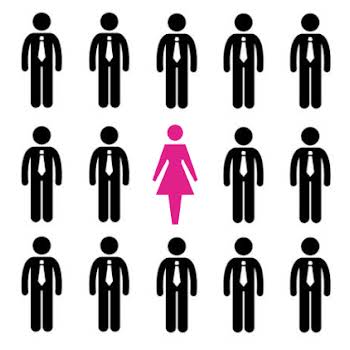
By Colette Sexton
05th Mar 2019
05th Mar 2019
Colette Sexton, news correspondent at The Sunday Business Post, on the impact that anti-women rhetoric in music has on us.
You can’t turn on a radio station these days without Ava Max proclaiming that a woman is “sweet but psycho”, while Zara Larsson begs her ex to “ruin my life” and “fuck up my nights”. Post Malone claims in Over Now that he trades “my women for some diamonds and a coupe”.
It is time to talk about music.
Last month when The 1975 won best British group at the Brits awards, singer Matty Healy used the acceptance speech to call out misogyny in the music industry. He quoted an article by the Guardian’s Laura Snapes, in which she wrote: “Male misogynist acts are examined for nuance and defended as traits of ‘difficult’ artists, [while] women and those who call them out are treated as hysterics who don’t understand art”.
Related: The BRIT Awards had a lot of empowering moments for women this year
This misogyny is quite obviously seeping down to the products that the music industry produce. While songs might have a catchy beat, their lyrics can be damaging. Some people argue that young people do not pay attention to the lyrics, and they only use music for entertainment, but studies have proven this to be incorrect. Men who listened to misogynistic lyrics showed increased aggressive responses toward women as well as a more negative perception of them, according to a 2006 study published in the Personality and Social Psychology Bulletin.
Some studies have found that the more teenagers like a certain type of music, the more attention they pay to the lyrics. Another 2006 study published in the Pediatrics Journal found that 17 per cent of male teenagers and 25 per cent of female teenagers like their favourite songs because the lyrics reflected their feelings.
It is not just in one ear and out the other. Sexually degrading lyrics correlate with higher rates of sexual activity in adolescents, according to a study published in The Pediatrics Journal.
And that’s just the lyrics. Kids today have far greater access to music videos than previous generations did. Within music videos, female artists are far more sexualized than male artists. According to a 2011 article in Mass Communication and Society, female artists danced and dressed to appear sexually alluring more frequently than male artists in music videos. The results revealed that not only were male artists were less likely to use their own sexuality in their videos, both male and female artists were likely to have female artists dancing in sexually suggestive ways.
What can we do about this? Censorship is not the solution, but rather we need to be aware of what we might sing along to in the car or play on repeat on Spotify or YouTube, and the impact that might be having on us. When misogynist lyrics or videos play, parents should use the opportunity to talk to their kids about why they are inappropriate. And maybe we should start making a conscious effort to listen to more women-positive songs. I’m off to listen to Anne Marie’s Perfect to Me on repeat.























